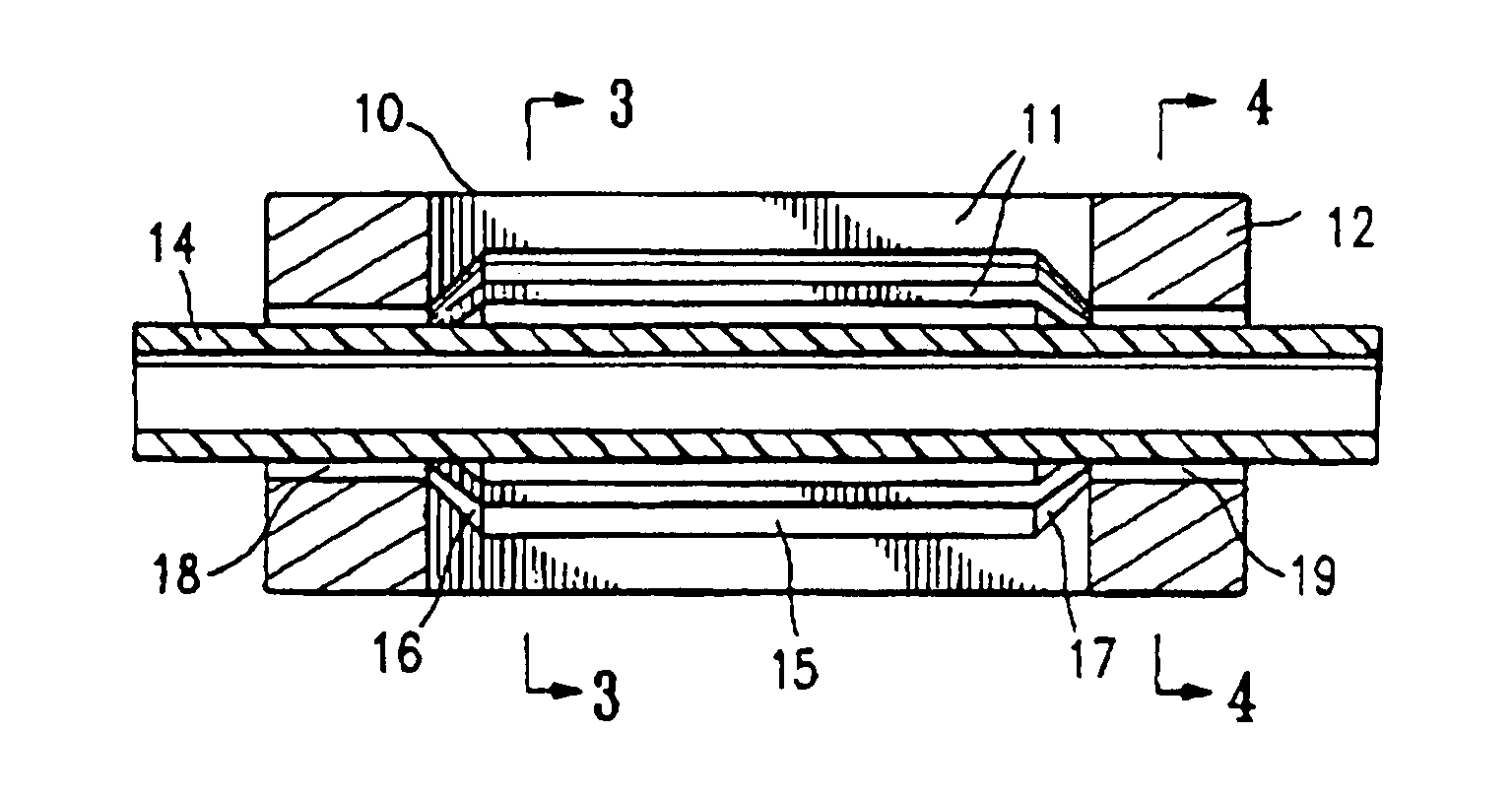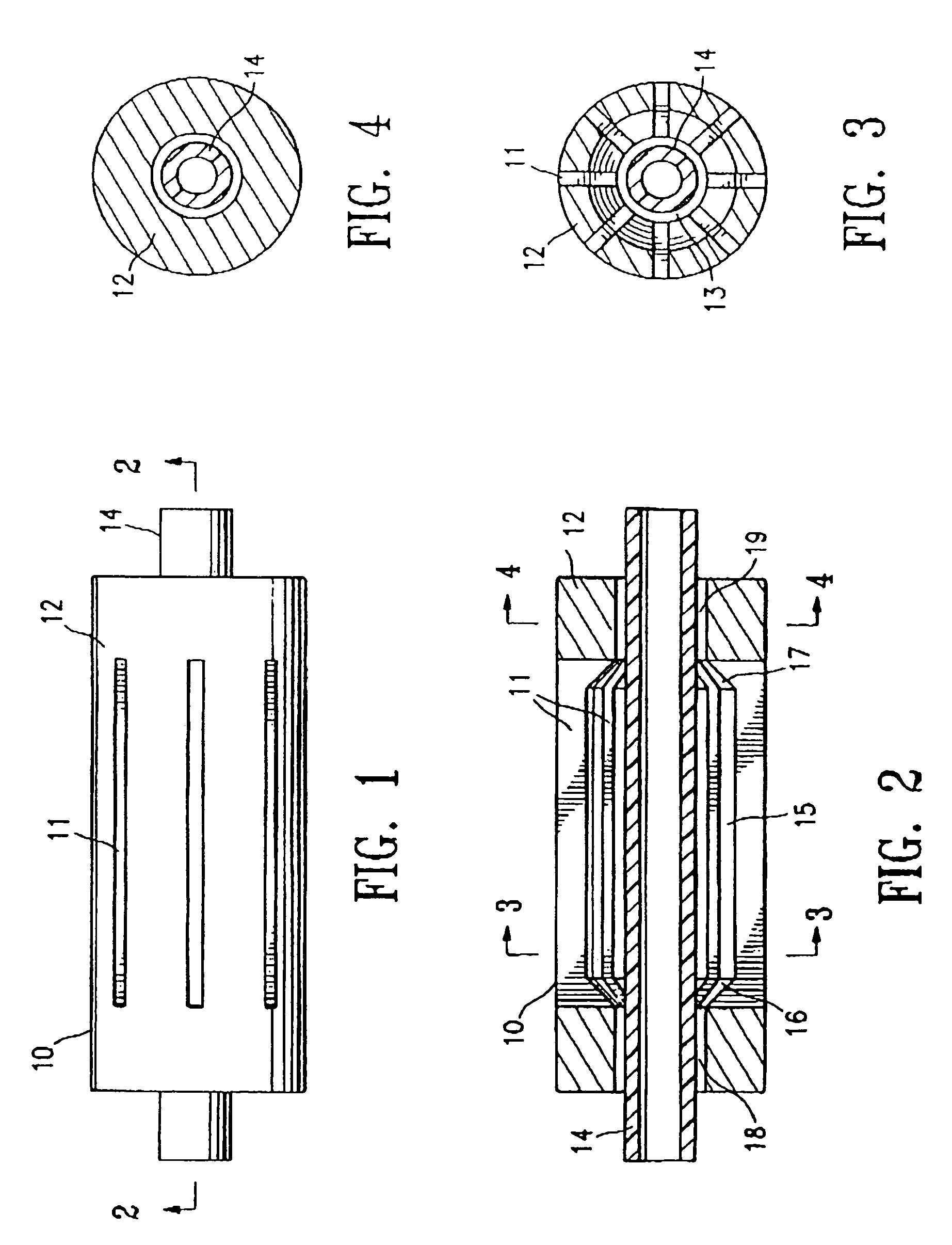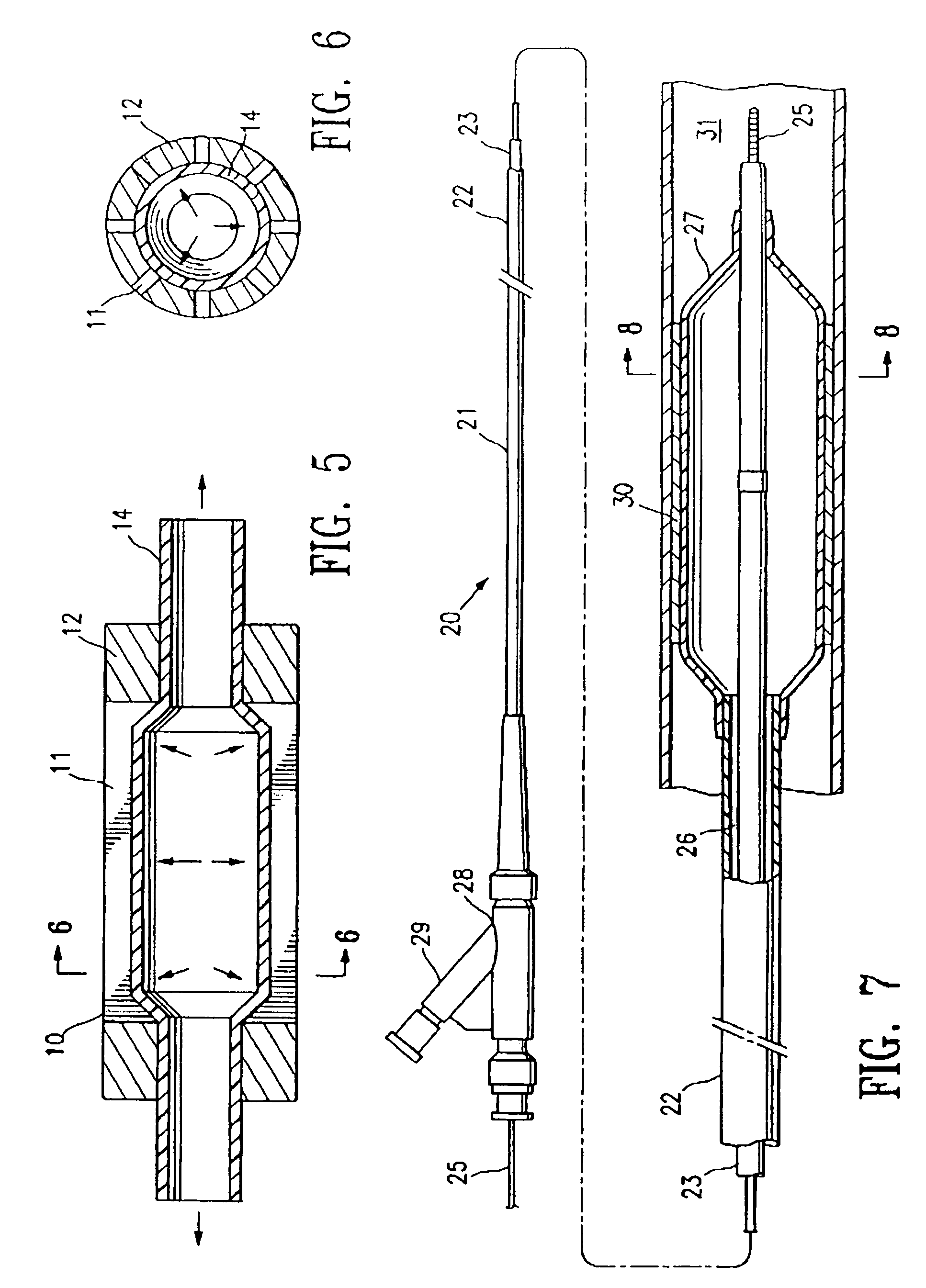Slotted mold for making a balloon catheter
a balloon catheter and mold technology, applied in the field of medical devices, can solve the problem of not providing an opening into the chamber, and achieve the effects of increasing the frictional drag of the surface, axially elongating the tube during blow molding, and improving the heating of the tub
- Summary
- Abstract
- Description
- Claims
- Application Information
AI Technical Summary
Benefits of technology
Problems solved by technology
Method used
Image
Examples
Embodiment Construction
[0030]FIG. 1 illustrates a mold 10 which embodies features of the invention having channels 11 in a wall 12 of the mold. The mold has an outer surface, and an inner surface which defines an interior chamber 13, as best shown in FIG. 2 illustrating a longitudinal cross section of the mold 10 of FIG. 1, taken along line 2-2, and in FIGS. 3 and 4 illustrating transverse cross sectional views of the mold of FIG. 2, taken along lines 3-3 and 4-4, respectively. A polymer tube 14 is in the mold chamber 13. In the embodiment of FIG. 1, the channels 11 are longitudinally extending slots, the entire length of which extend through the wall 12 of the mold 10 from the outer surface to the inner surface, so that the channels 11 are in fluid communication with the chamber 13, as best illustrated in FIGS. 2 and 3.
[0031]The mold chamber 13 has a central section 15, proximal and distal tapered sections 16, 17 at either end of the central section 15, a proximal end section 18 at the proximal end of th...
PUM
 Login to View More
Login to View More Abstract
Description
Claims
Application Information
 Login to View More
Login to View More - R&D
- Intellectual Property
- Life Sciences
- Materials
- Tech Scout
- Unparalleled Data Quality
- Higher Quality Content
- 60% Fewer Hallucinations
Browse by: Latest US Patents, China's latest patents, Technical Efficacy Thesaurus, Application Domain, Technology Topic, Popular Technical Reports.
© 2025 PatSnap. All rights reserved.Legal|Privacy policy|Modern Slavery Act Transparency Statement|Sitemap|About US| Contact US: help@patsnap.com



